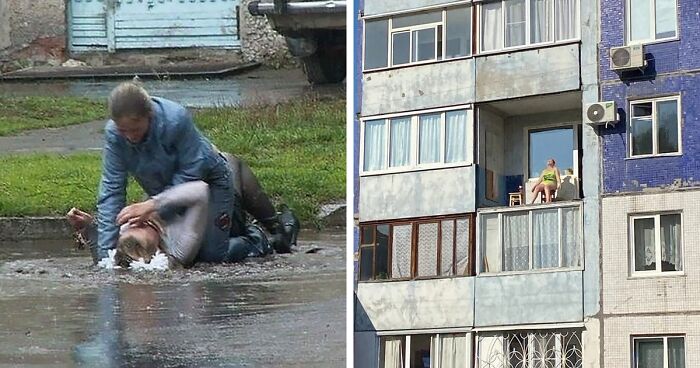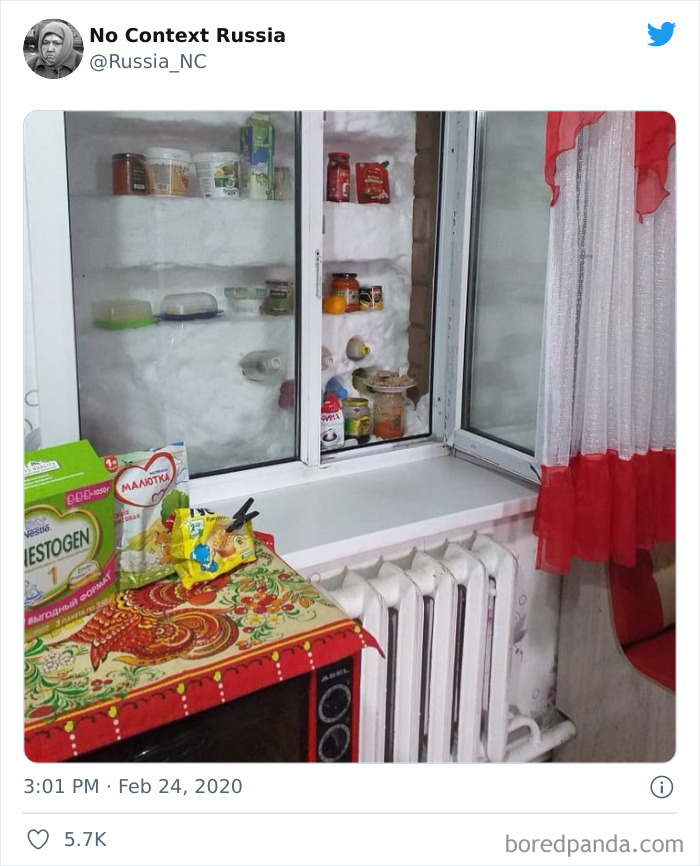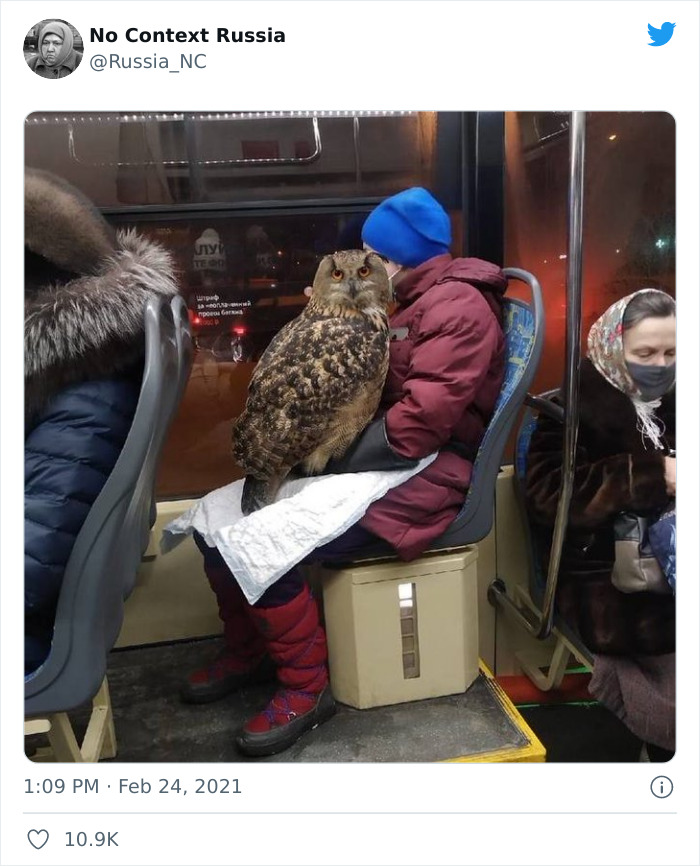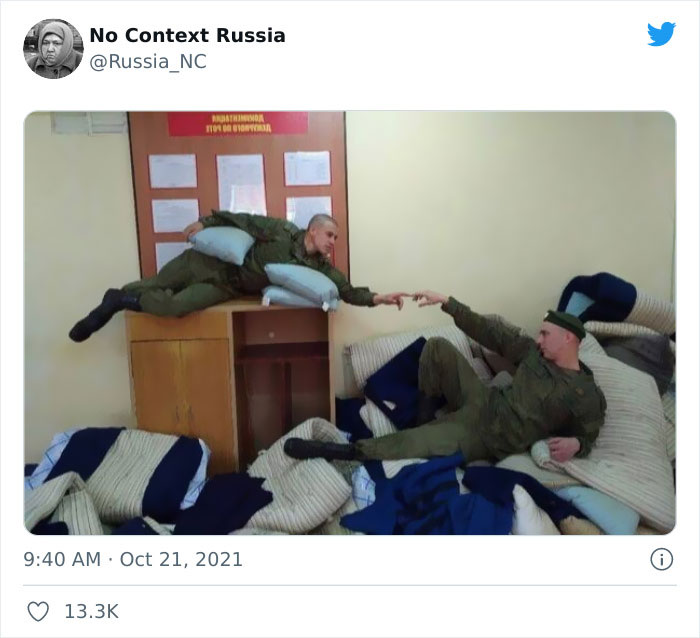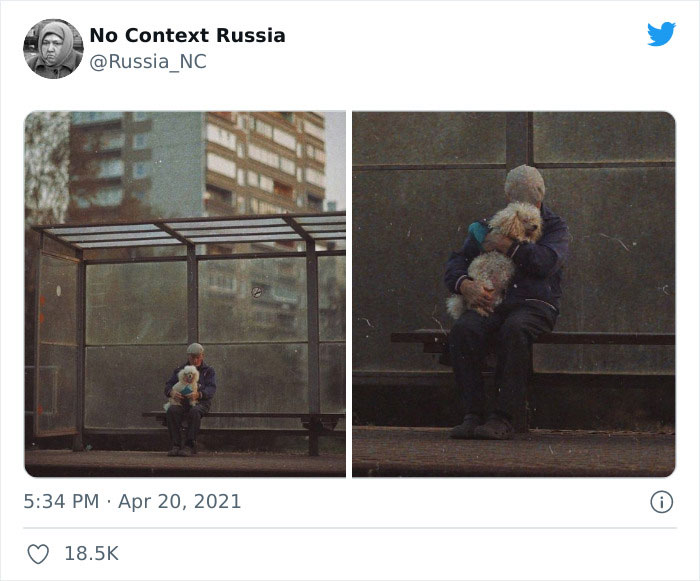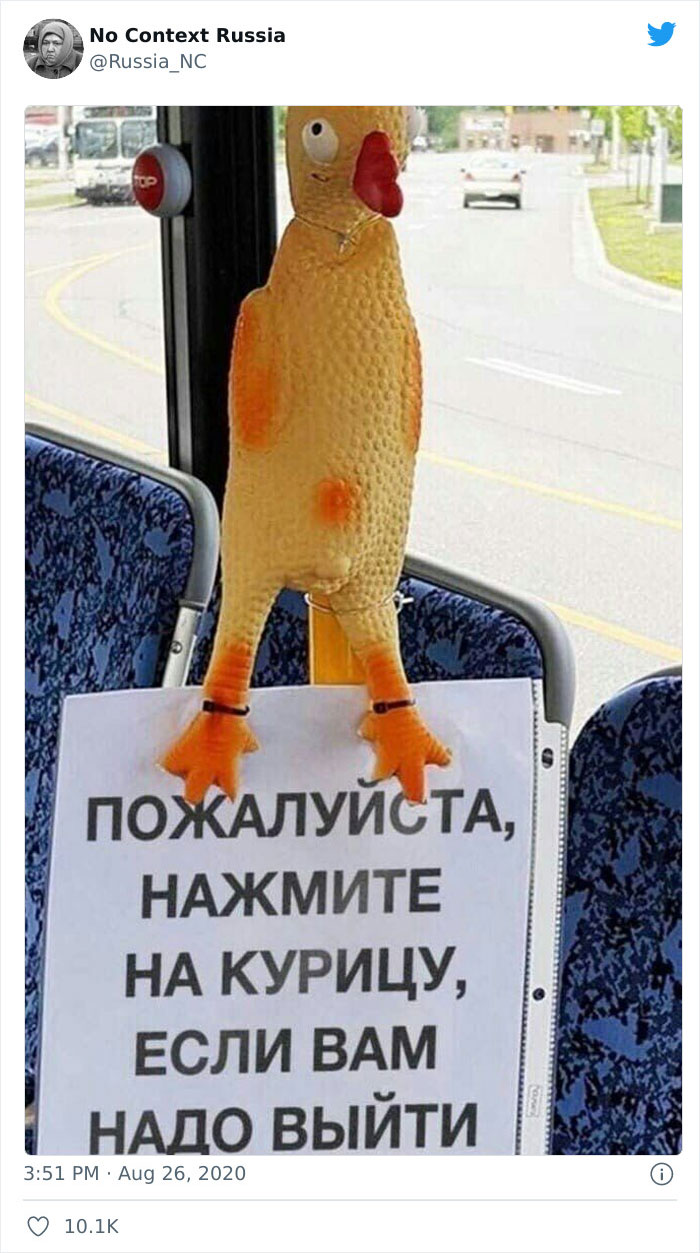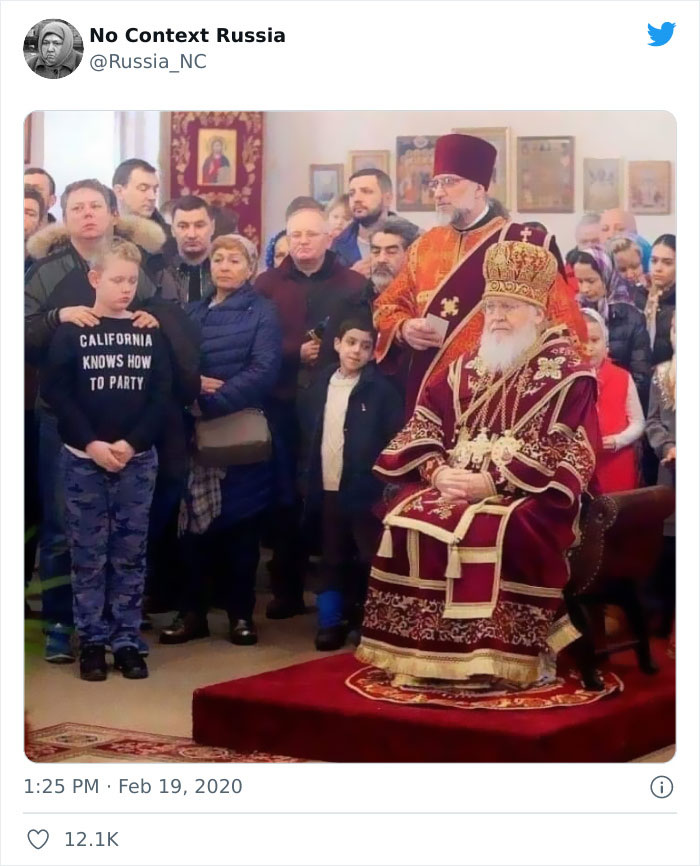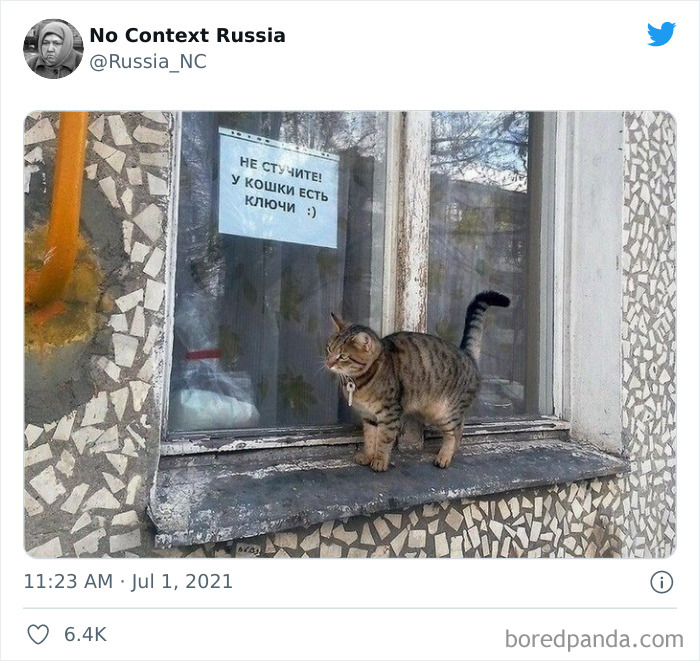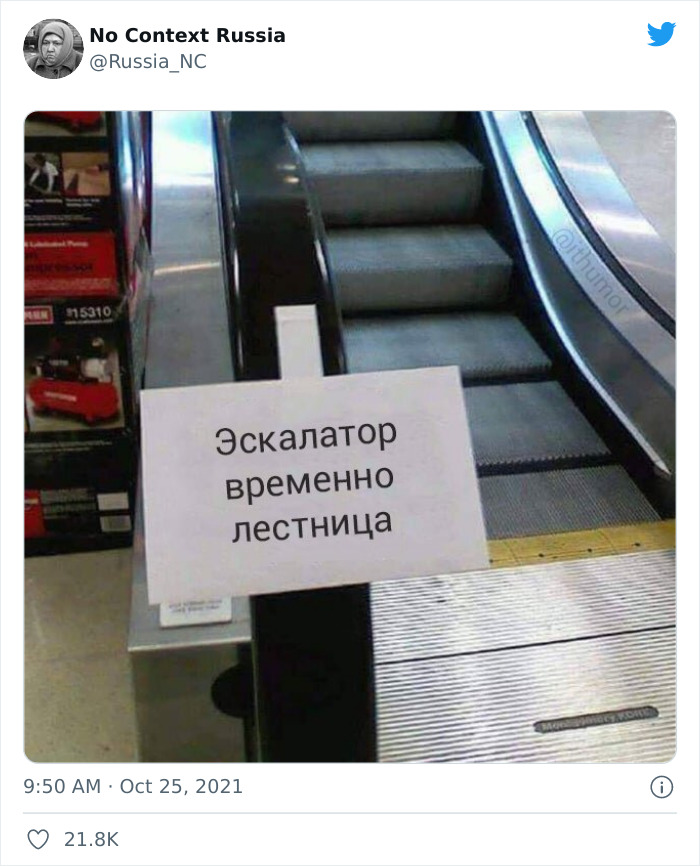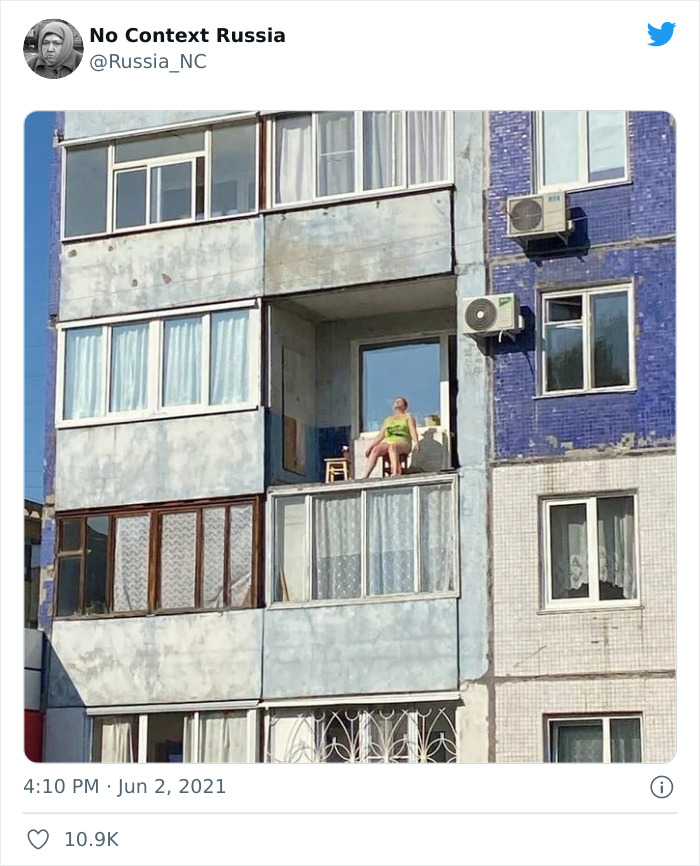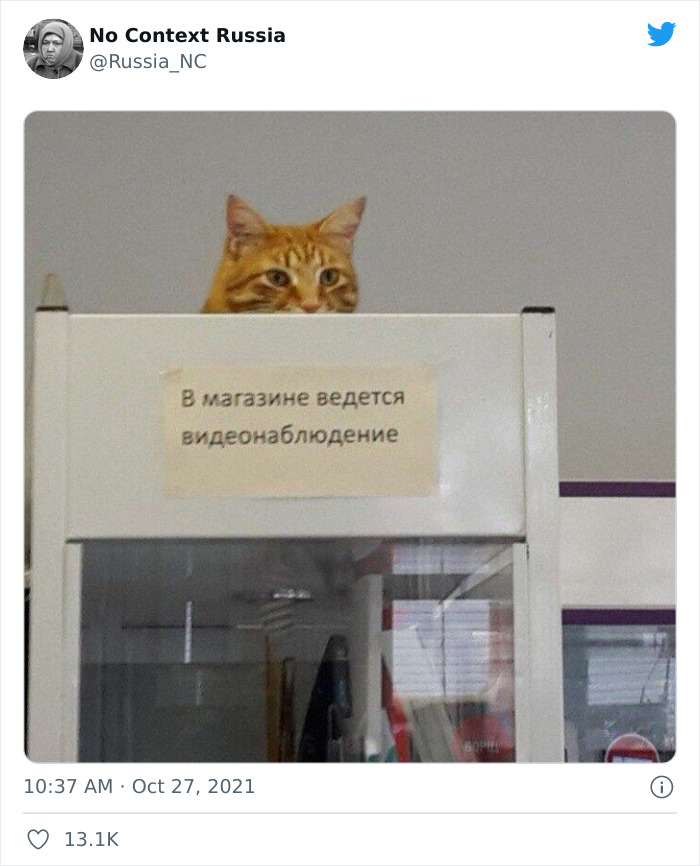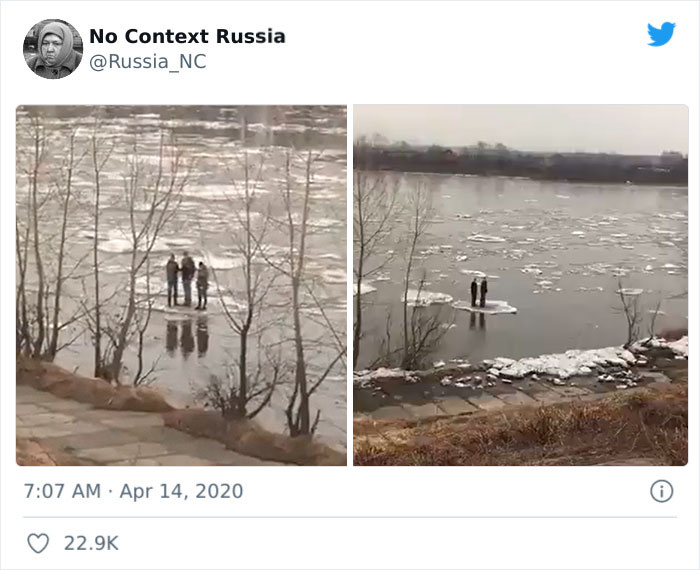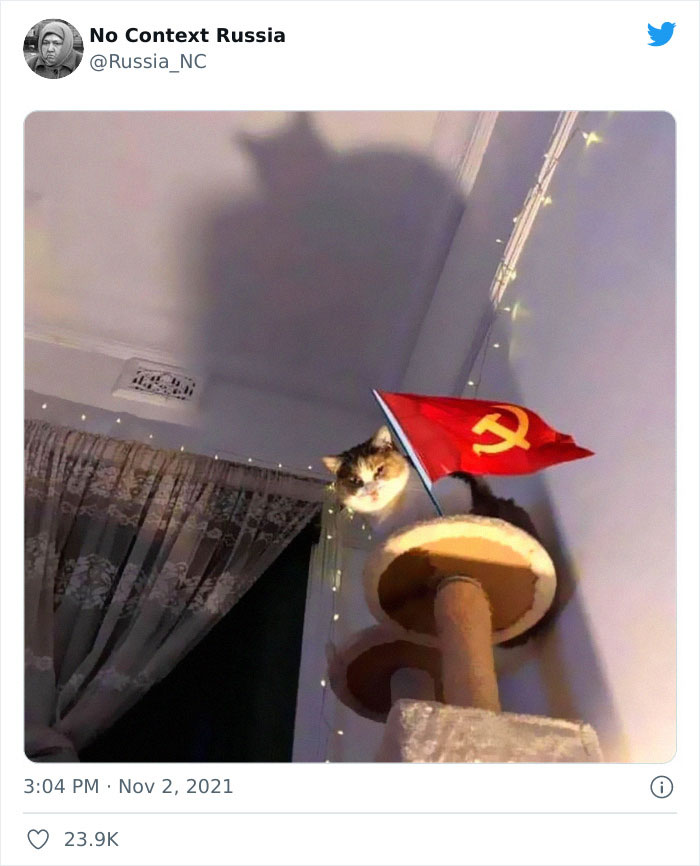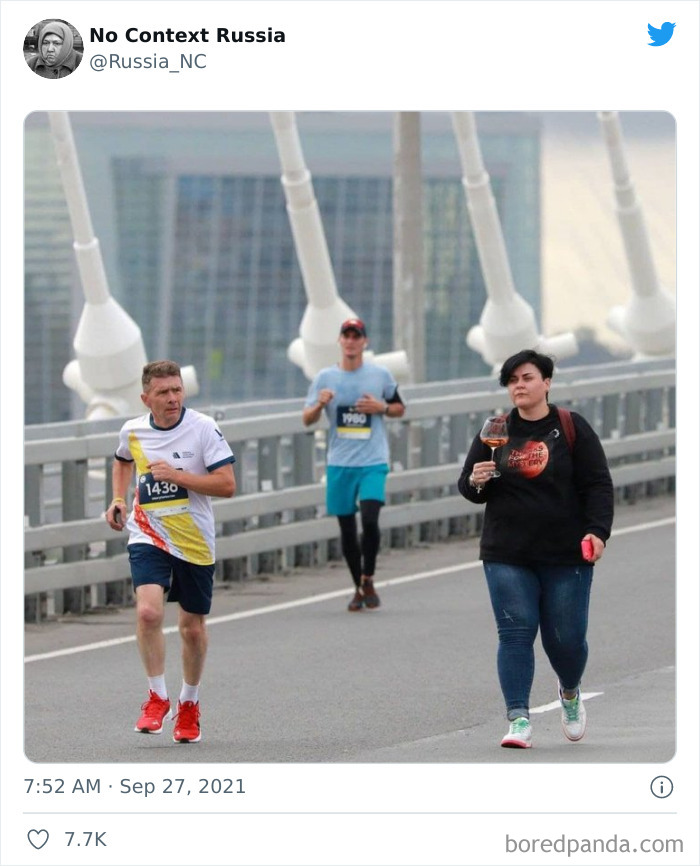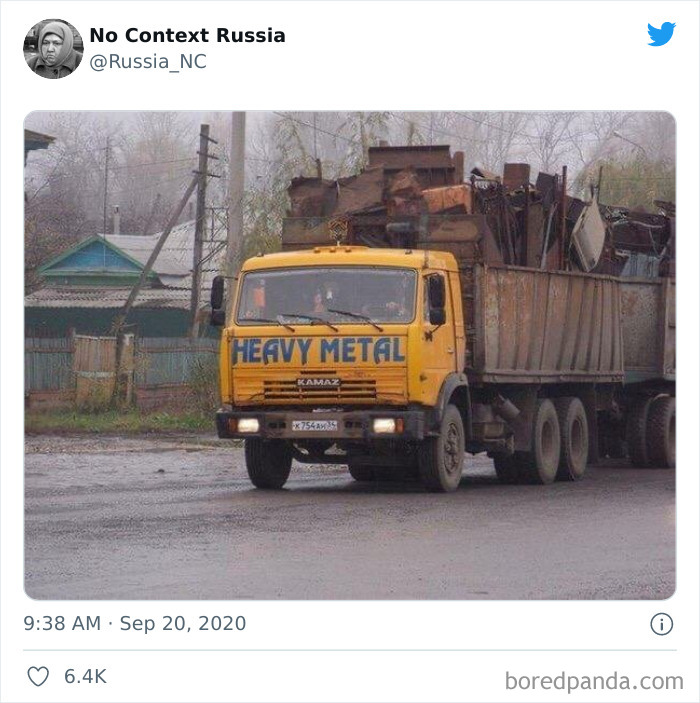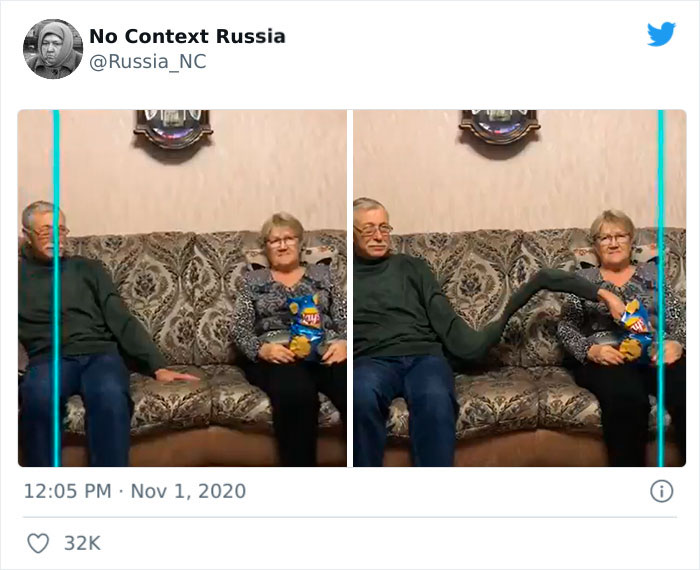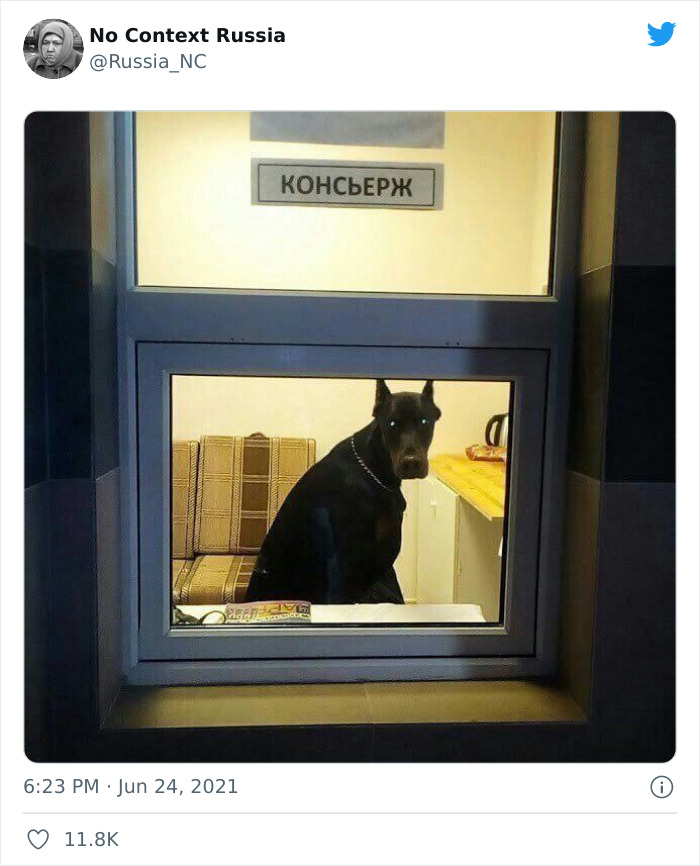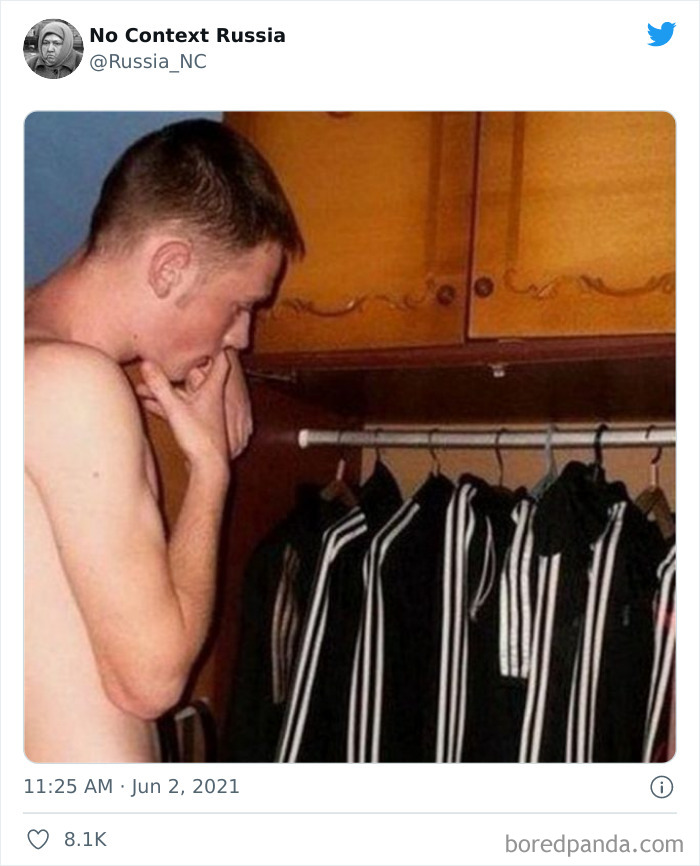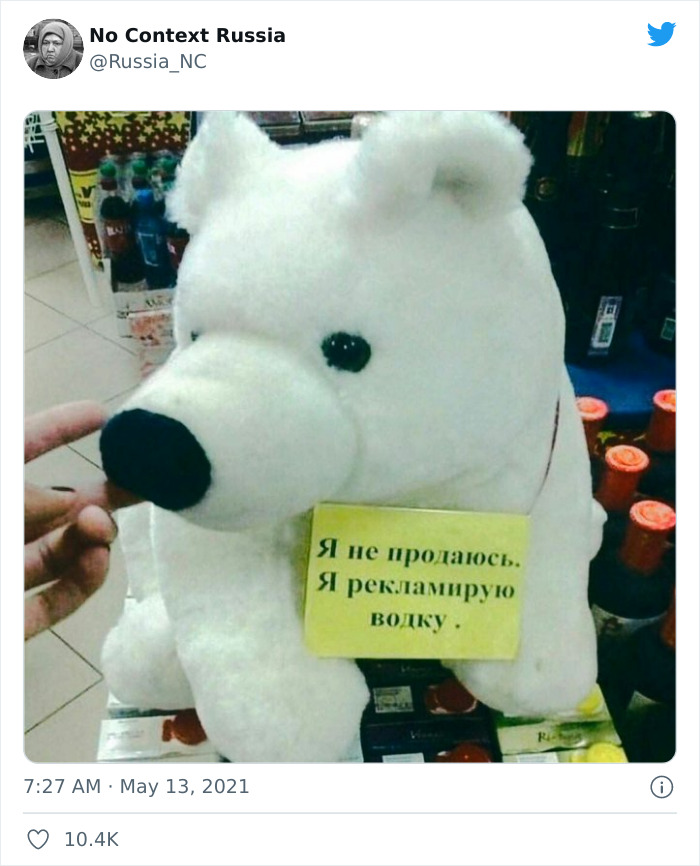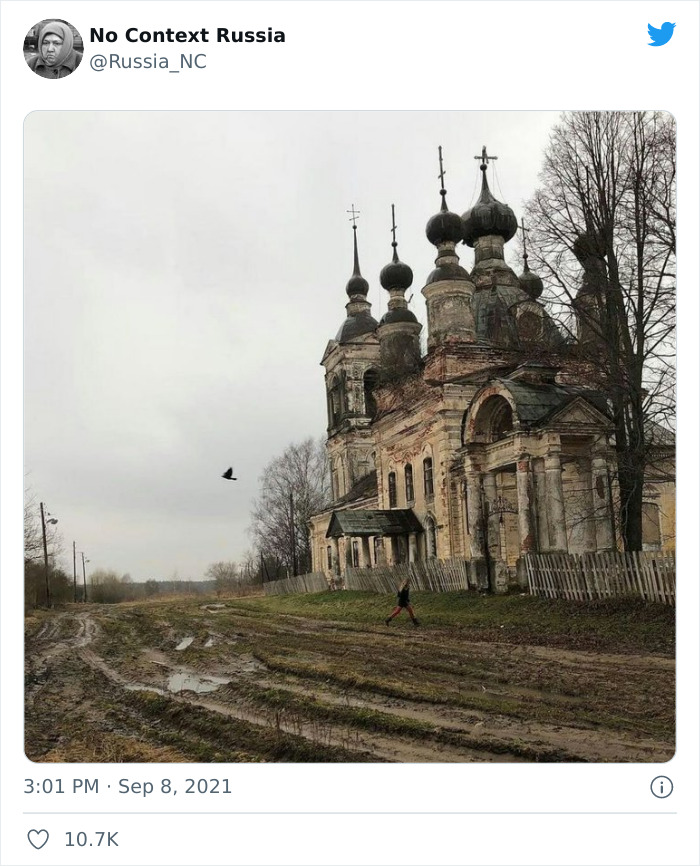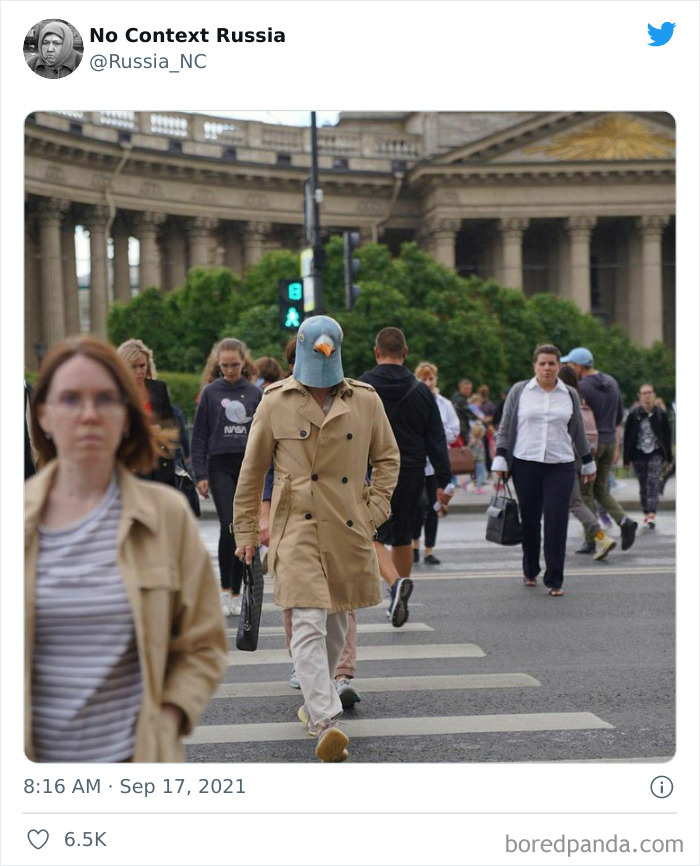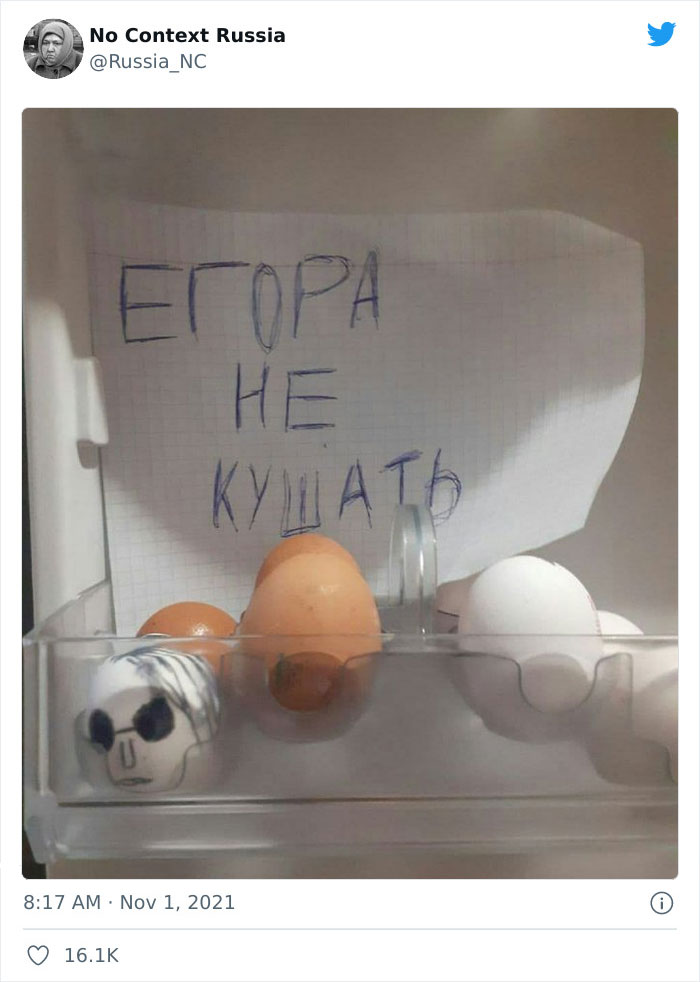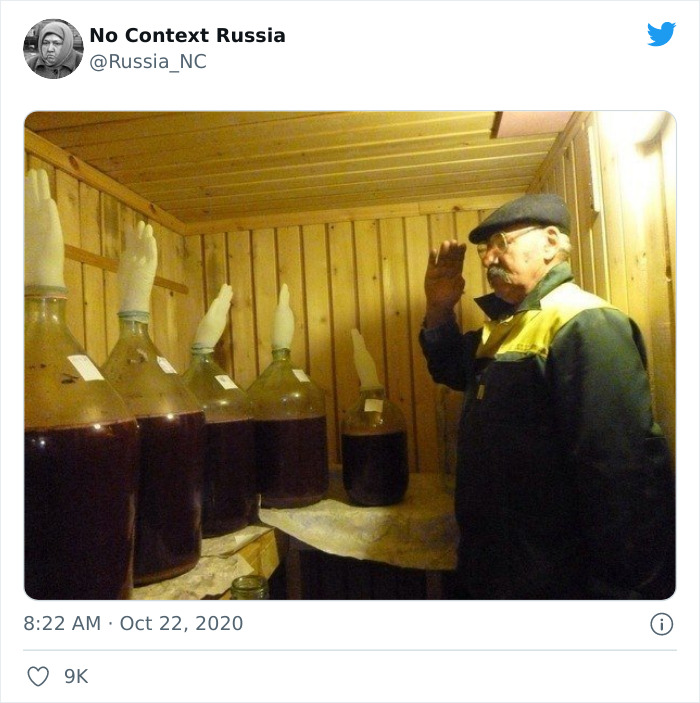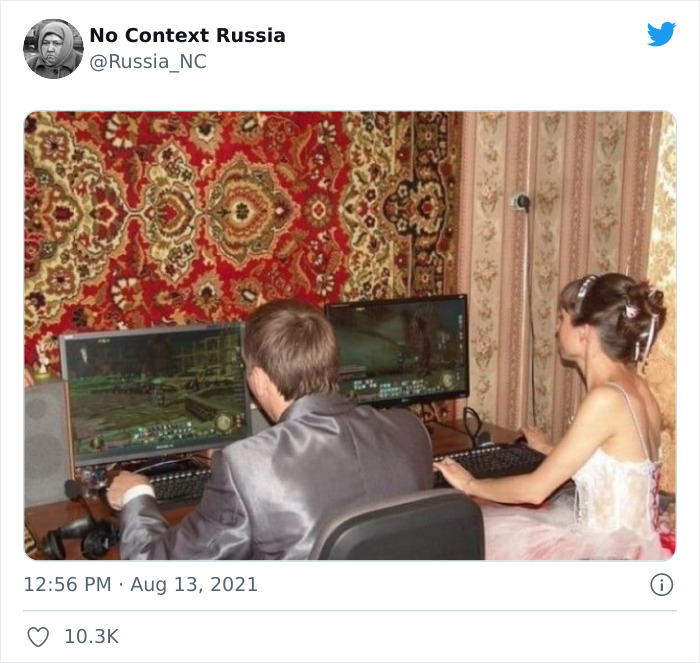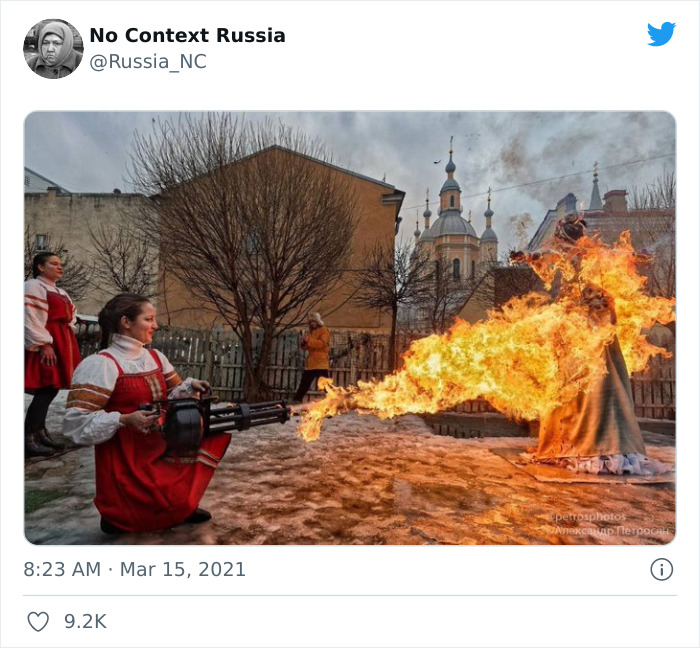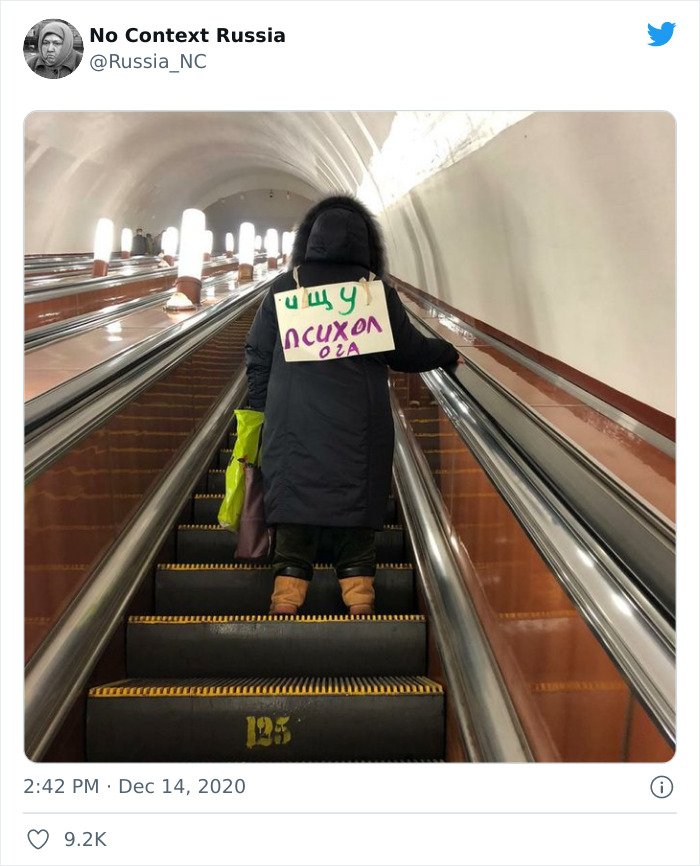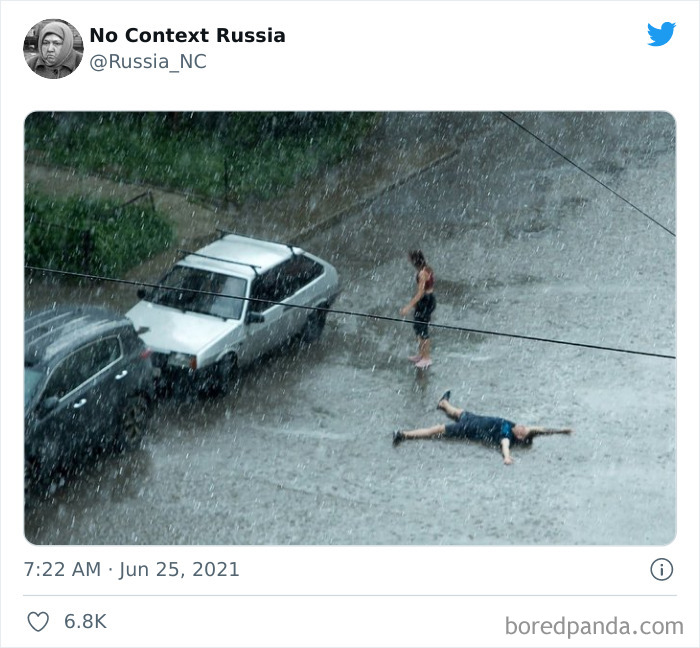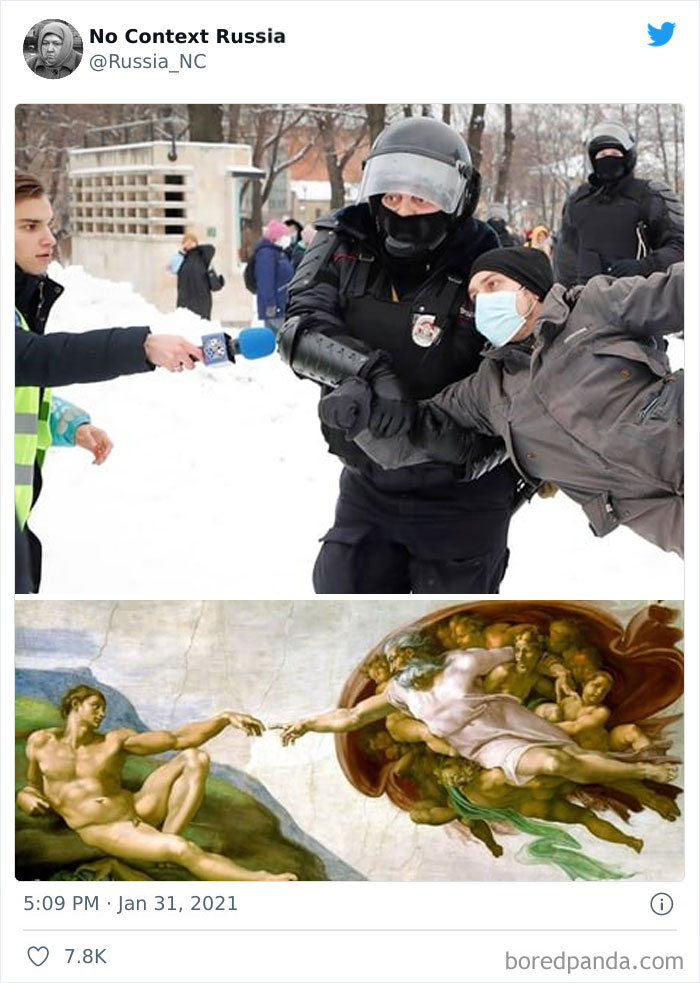There are funny pics, memes, and cringey videos we shamelessly devour on the internet, eating up our productive time like there’s no tomorrow. And then, there are funny Russian pics that take the entertainment to a whole new level.
The Twitter page “No Context Russia” is basically a virtual home to this kind of content. The posts seem to reflect the very core of “Russian reality” taken out of context that feels both hyperreal and surreal at the same time. Think of “Stal’in Doner” or a man covered in brown paint chopping a watermelon in half with his bare hand—things are really weird on the other side of the world!
Scroll down, upvote your favorite Russian reality moments, and be sure to check our previous post on what “A Normal Day In Russia” looks like as presented in a compilation of weird and wonderful pics.
This post may include affiliate links.
A lot of Russian content ends up on Western social media platforms like YouTube, Instagram and Twitter, where people share funny and often plain crazy videos and images about everyday life there. Such videos have gained so much momentum on YouTube that a single Russian fail compilation amasses tens of millions of views. And there are plenty of them!
However, Western social media in Russia is not something to be taken for granted. In fact, on March 10 this year, photos and videos on Twitter were loading more slowly than usual for users in Russia. This came as a flashback for opposition activists who started demonstrations against electoral fraud as early as a decade ago with the help of Facebook and VKontakte.
Since then, the state has been in development of a legal and technological toolkit to regulate online information. They introduced content filters, started blocking lists and fining or even jailing people for things they post online.
"Do not knock, the cat has keys"
"Escalator temporarily stairs"
In 2019, the Kremlin made a controversial move in taking control over the country’s internet infrastructure. The so-called “sovereign internet” law was introduced, which was basically a series of amendments to existing laws. TIME explains that these amendments theoretically enabled the Russian authorities to isolate “RuNet”—the unofficial name for websites hosted in Russia and sites on Russian domain names— from the global web in vaguely defined times of crisis, giving the Russian authorities control over flows of data coming in and out of the country.
What’s more, the “sovereign internet” law required internet service providers (ISPs) to install deep packet inspection (DPI) equipment. The same equipment has been used by some countries, like China, for censorship. It turns out that DPI equipment tools enable the state to circumvent providers, automatically block content and reroute internet traffic.
This is actually from a video taken on April 8, 2020 in Novokuznetsk: https://www.youtube.com/watch?v=EXF2-ZmD4G8 The person filming them shouts at them: "- What’s up, boys, bus tickets got too expensive? Are you sailing to Novoboydaevka?" - "No, to Novosibirsk." - "Where is the next stop?" - "Wherever we arrive!"
After the First Order went out of business, the former staff had to find new jobs....
hmmm, white w/ black stripes or black w/white stripes? UGH! Such a hard decision!!
"Don't eat Egor"
Egor Letov was an underground musician, played some kind of experimental rock in 90s. This is his portrait)
Looks like he makin some home made wine...Saluting the yeast thats hard at work?
"Searching for a therapist"
Note: this post originally had 77 images. It’s been shortened to the top 40 images based on user votes.
Not really. First of all, Russia is a big place. Lotta cultures and weirdness to go around. Second, and more importantly, they only post the weird pictures that are from russia, to fool people into thinking that this is the norm in russia. If I went around the US wearing dead raccoons on my shoulders, it would be extremely weird. They'd post it to a russian site that says "No context US pics". But in reality, its just in WV that you'd see that, particularly the mountains. Case in point.
Load More Replies...Not really. First of all, Russia is a big place. Lotta cultures and weirdness to go around. Second, and more importantly, they only post the weird pictures that are from russia, to fool people into thinking that this is the norm in russia. If I went around the US wearing dead raccoons on my shoulders, it would be extremely weird. They'd post it to a russian site that says "No context US pics". But in reality, its just in WV that you'd see that, particularly the mountains. Case in point.
Load More Replies...